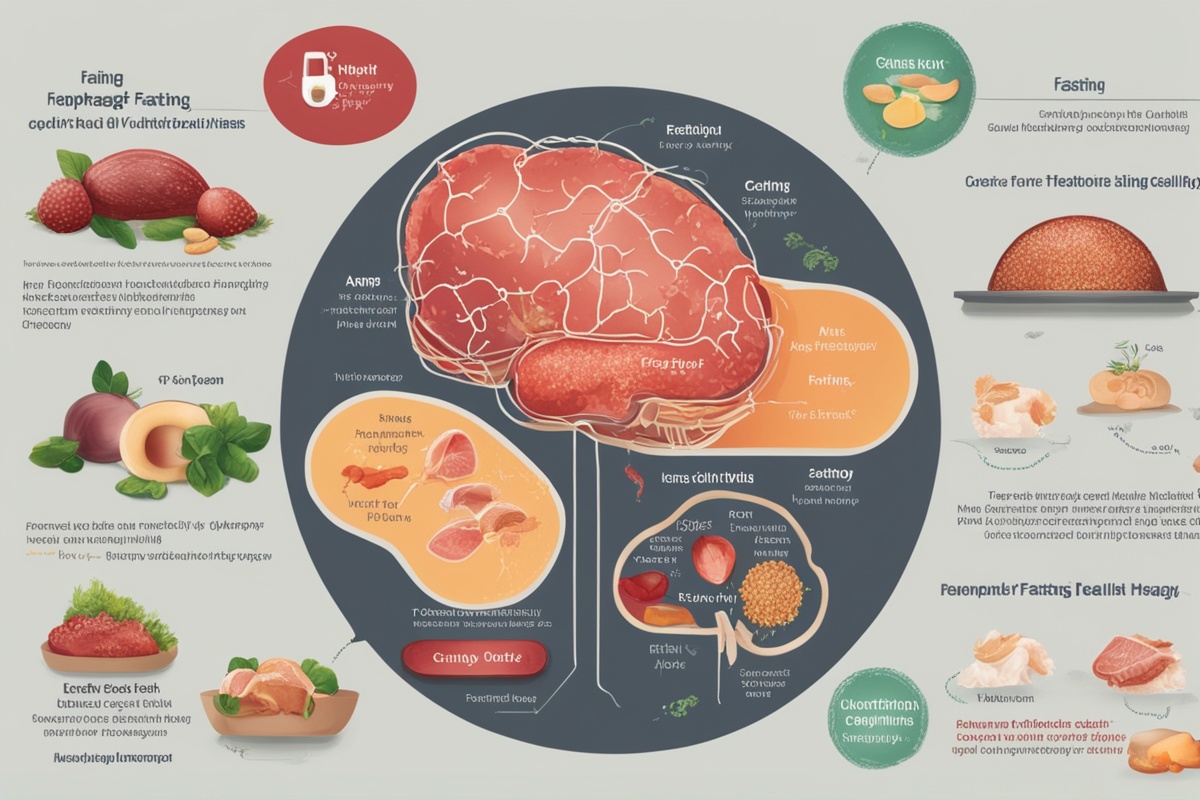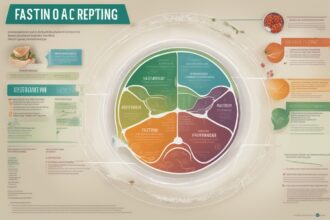Hey there, health enthusiasts! If you’re into fasting or just curious about how to optimize your body’s natural processes, you’ve likely stumbled across the term “autophagy.” But what exactly is it, and why are so many people raving about the autophagy benefits? In simple terms, autophagy is your body’s built-in recycling system, clearing out damaged cells and regenerating new ones. When paired with fasting, it becomes a powerhouse for health and longevity. In this post, we’ll dive deep into what autophagy is, how fasting triggers it, and why it’s a game-changer for your wellness journey. Let’s unpack the science, sprinkle in some practical tips, and explore how you can harness these incredible benefits for yourself.
What Is Autophagy and Why Should You Care?
Autophagy, derived from the Greek words for “self-eating,” is a cellular process where your body breaks down and recycles old, damaged, or dysfunctional components. Think of it as a spring cleaning for your cells. Discovered by scientists like Yoshinori Ohsumi, who won the Nobel Prize in 2016 for his work on this mechanism, autophagy plays a crucial role in maintaining cellular health. Without it, toxic waste builds up, leading to inflammation, disease, and aging. The autophagy benefits include everything from improved immunity to protection against neurodegenerative conditions. And here’s the exciting part: fasting is one of the most effective ways to kickstart this process. By depriving your body of food for a set period, you signal your cells to switch into cleanup mode, unlocking a host of health perks.
How Fasting Triggers Autophagy
Fasting, whether it’s intermittent fasting or prolonged fasts, creates a metabolic shift in your body. When you stop eating, your insulin levels drop, and your body starts burning stored energy. This stress on your system activates pathways like AMPK and inhibits others like mTOR, which are key regulators of autophagy. Within 12–16 hours of fasting, depending on your body and activity levels, autophagy ramps up. Studies suggest that extended fasts of 24–48 hours can enhance these autophagy benefits even further. The beauty of this process is that it’s natural—your body is hardwired to do this when food is scarce, mimicking the conditions our ancestors faced. So, fasting isn’t just about weight loss; it’s a tool to tap into this ancient survival mechanism for modern health gains.
Top Autophagy Benefits for Your Health
The science behind autophagy is impressive, but what does it mean for you practically? Let’s break down some of the standout autophagy benefits that have researchers and health buffs buzzing. These effects aren’t just theoretical—they’re backed by studies and can make a real difference in how you feel and age.
- Cellular Repair and Longevity: Autophagy clears out damaged proteins and organelles, reducing the risk of age-related decline and promoting longer, healthier cells.
- Improved Immune Function: By recycling old immune cells and pathogens, autophagy helps your body fight infections more effectively.
- Reduced Inflammation: Clearing cellular debris cuts down on chronic inflammation, a root cause of many diseases like diabetes and heart conditions.
- Brain Health Protection: Autophagy may help prevent neurodegenerative diseases like Alzheimer’s by removing toxic proteins in the brain.
- Enhanced Metabolic Health: It supports fat-burning and insulin sensitivity, making it a key player in managing weight and preventing metabolic disorders.
Practical Tips to Maximize Autophagy Through Fasting
Ready to experience the autophagy benefits for yourself? Fasting is a fantastic starting point, but there are ways to optimize the process. It’s not just about skipping meals—how you approach fasting and support your body matters. Here are some actionable tips to get you started on your autophagy journey without feeling overwhelmed.
- Start with Intermittent Fasting: Try a 16:8 schedule (fast for 16 hours, eat during an 8-hour window) to ease into fasting and stimulate autophagy after 12–14 hours.
- Stay Hydrated: Drink plenty of water during your fast to support detoxification and keep your body running smoothly.
- Avoid Overeating Post-Fast: Break your fast with nutrient-dense foods like vegetables and lean proteins to avoid spiking insulin and halting autophagy.
- Incorporate Exercise: Light activity like walking or yoga during fasting can enhance autophagy by adding mild stress to your cells.
Other Ways to Boost Autophagy Naturally
While fasting is a primary trigger for autophagy, it’s not the only way to reap those autophagy benefits. Lifestyle tweaks can complement your fasting routine and keep your cells in top shape. For instance, a ketogenic diet, which mimics fasting by lowering carbs and increasing fats, can also activate autophagy pathways. Additionally, compounds like resveratrol (found in red wine and grapes) and curcumin (in turmeric) have been shown in studies to support this process. Sleep is another underrated factor—poor rest disrupts cellular repair, so aim for 7–9 hours of quality sleep. Even moderate calorie restriction without full fasting can nudge your body into cleanup mode. Combining these strategies with fasting creates a synergistic effect for optimal health.
Potential Risks and Precautions to Consider
While the autophagy benefits are exciting, fasting and inducing autophagy aren’t for everyone. If you’re new to fasting, jumping into a 48-hour fast might leave you dizzy, fatigued, or irritable. People with medical conditions like diabetes, eating disorders, or pregnancy should consult a healthcare provider before experimenting with fasting protocols. Overdoing it can also stress your body, potentially leading to muscle loss or nutrient deficiencies if not balanced with proper nutrition. The key is to listen to your body—start slow, monitor how you feel, and adjust as needed. Autophagy is powerful, but it’s most effective when approached with balance and mindfulness.
So, there you have it—a deep dive into the world of autophagy and how fasting can unlock its incredible benefits. From cellular rejuvenation to better brain health, the autophagy benefits are a compelling reason to explore fasting as part of your wellness routine. Whether you’re a seasoned faster or just starting out, remember that small, consistent steps—like a 16:8 fasting schedule or prioritizing sleep—can make a big difference. The science is clear: your body has an amazing capacity to heal itself, and autophagy is at the heart of that process. Why not give it a try and see how it transforms your energy and vitality? Drop a comment below if you’ve experienced the perks of fasting or have questions about getting started. Let’s keep the conversation going and support each other on this health journey!






